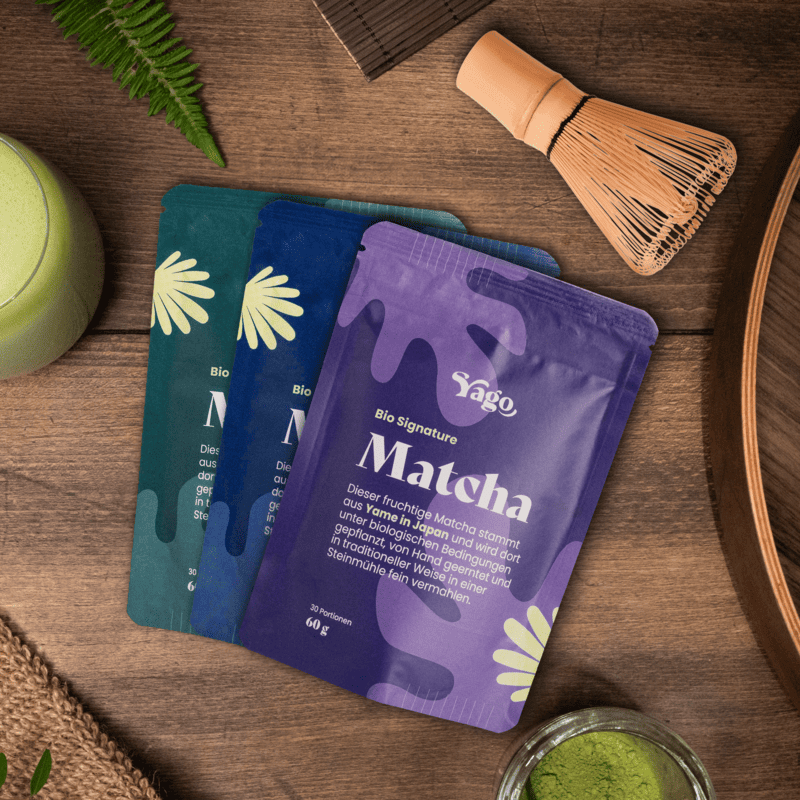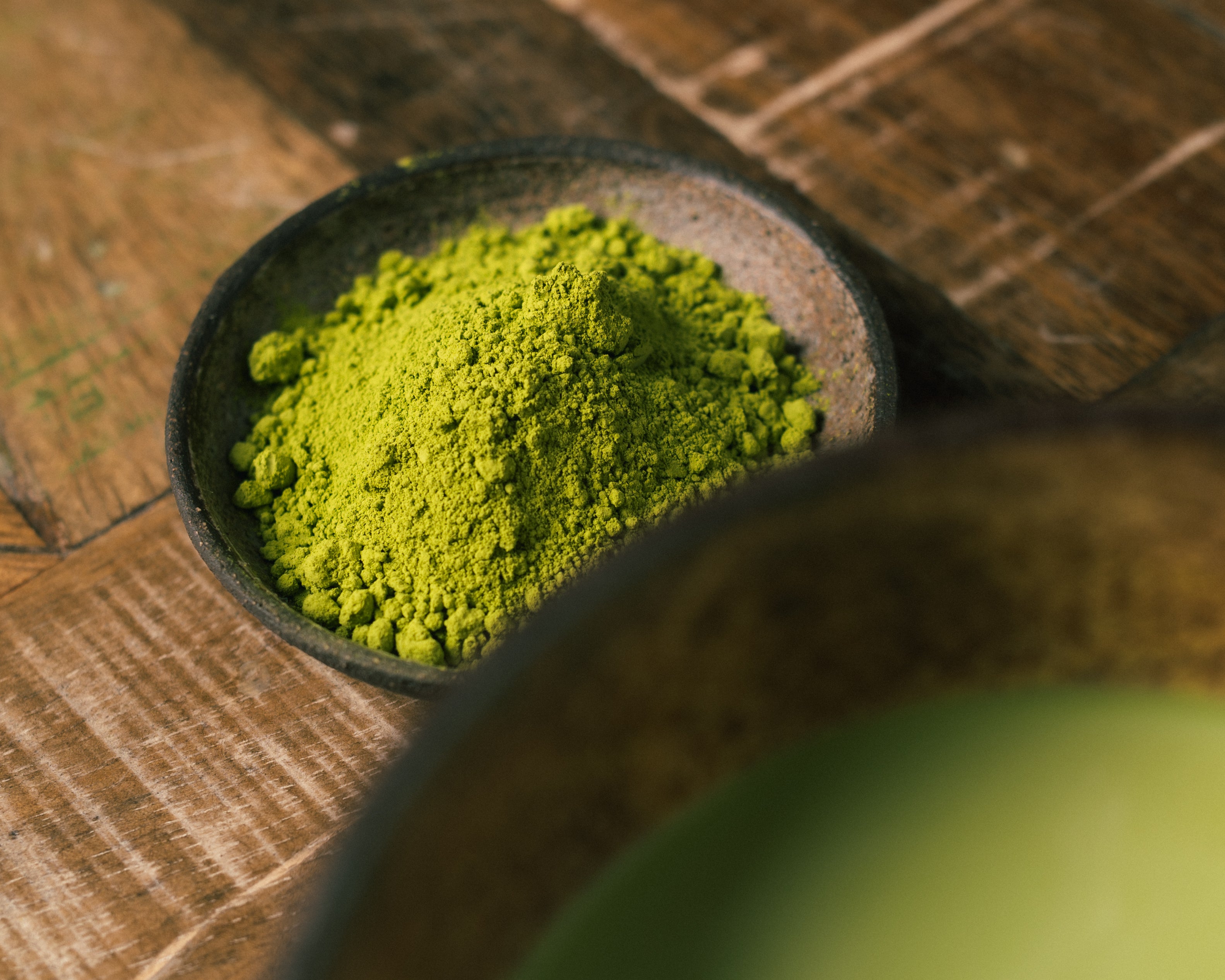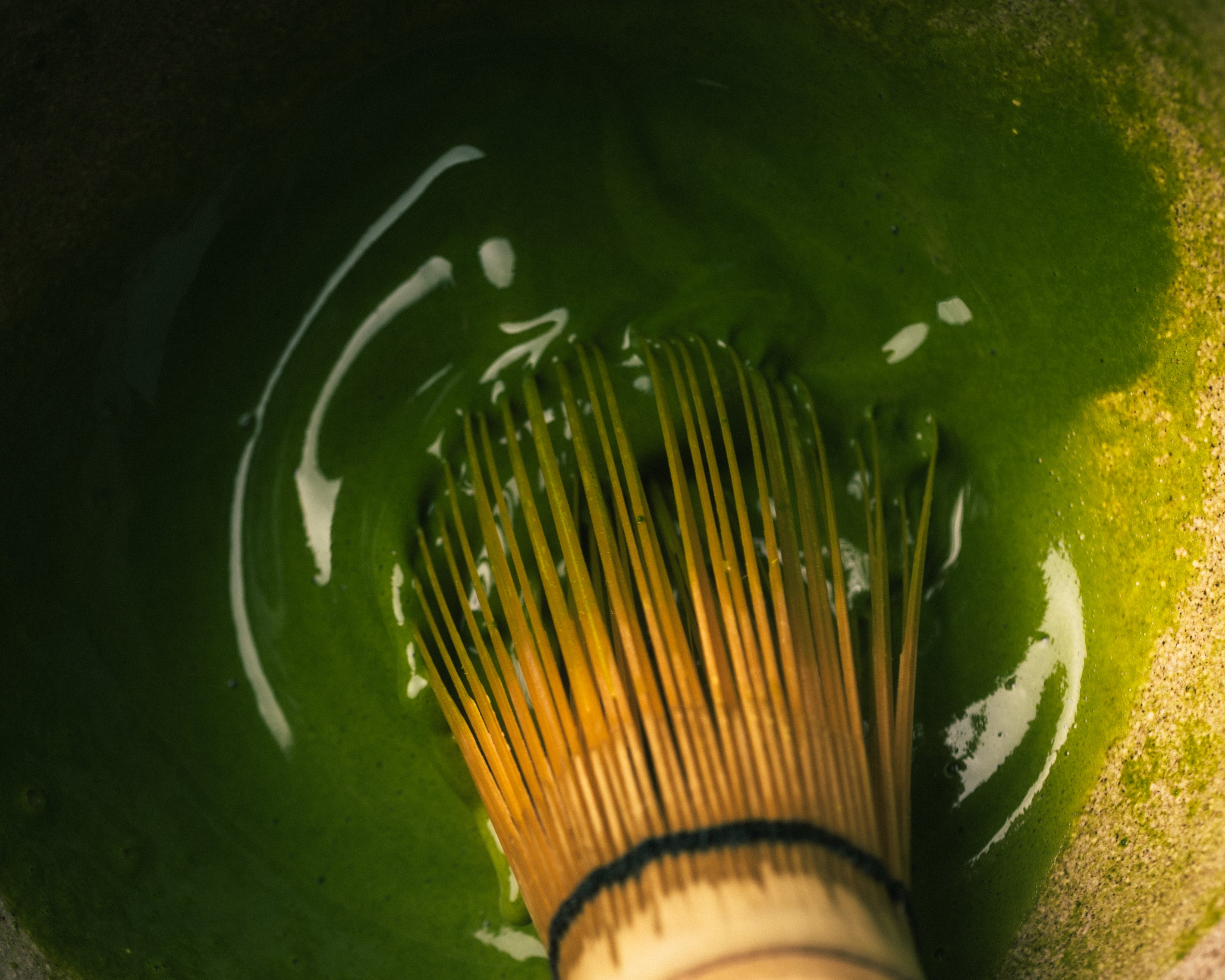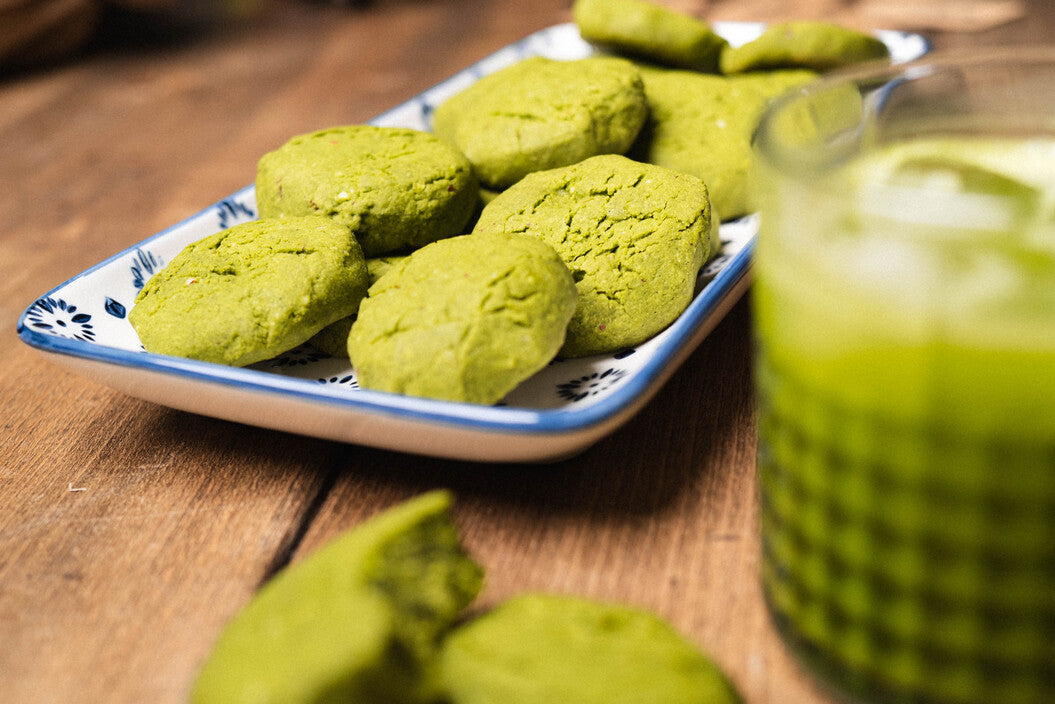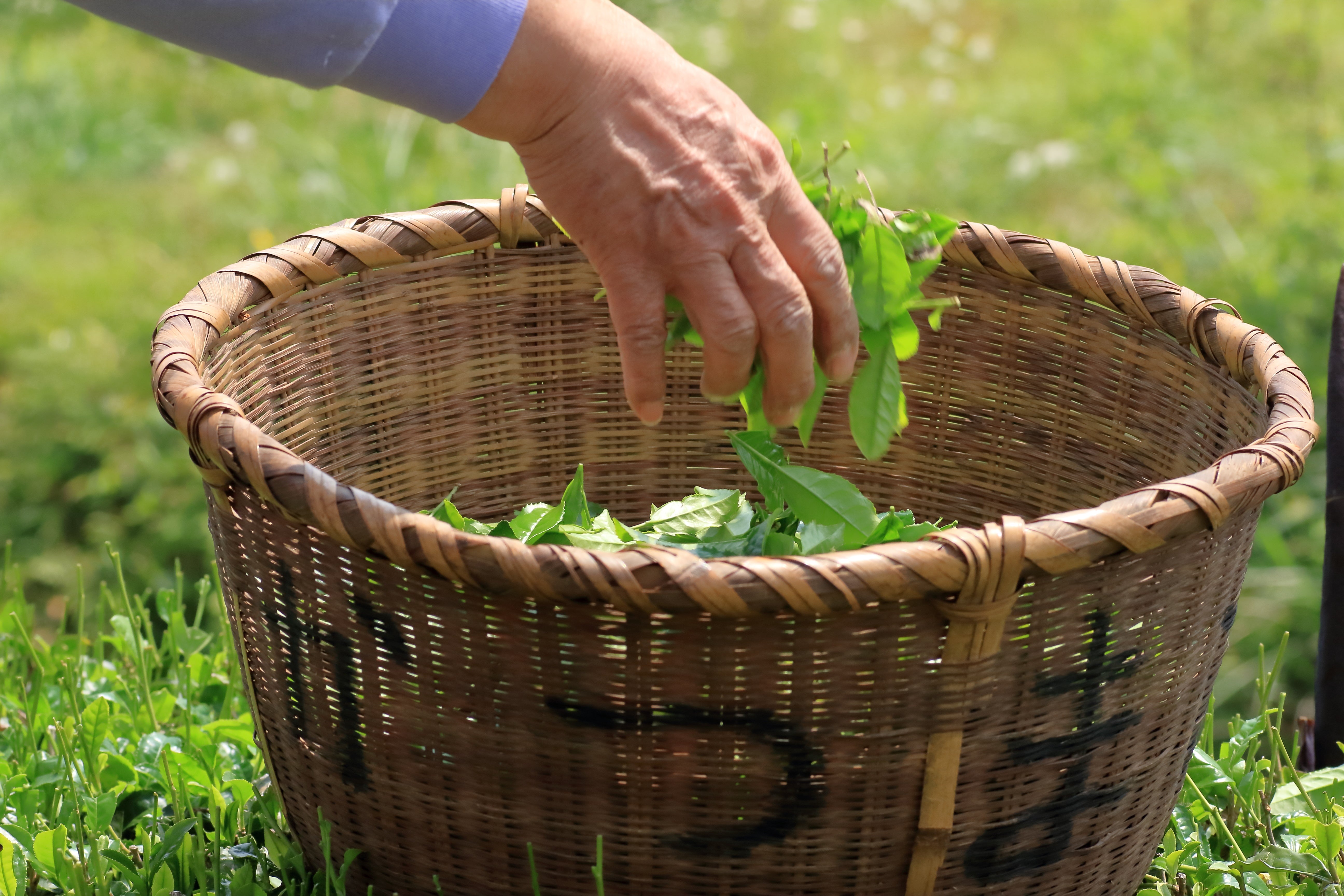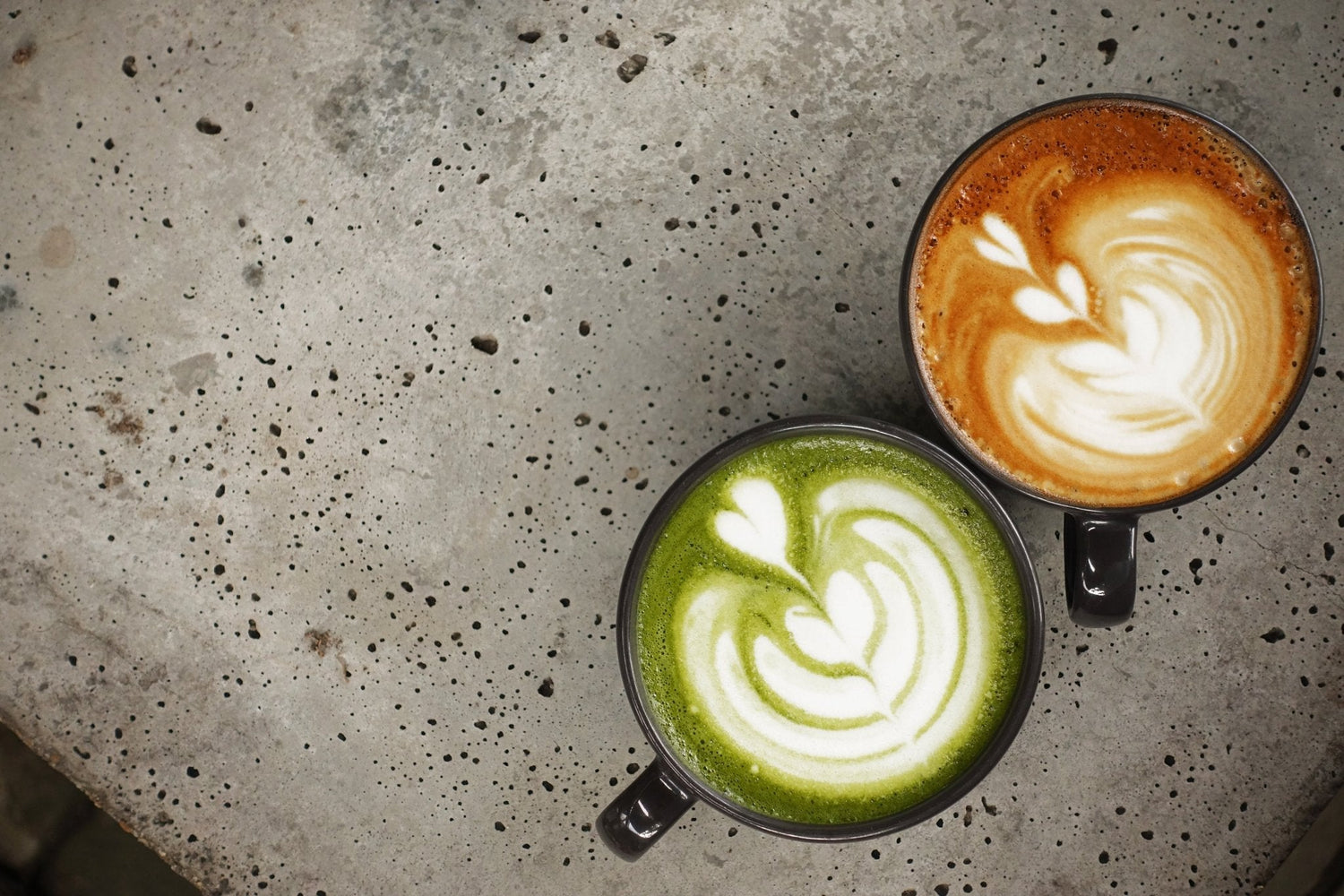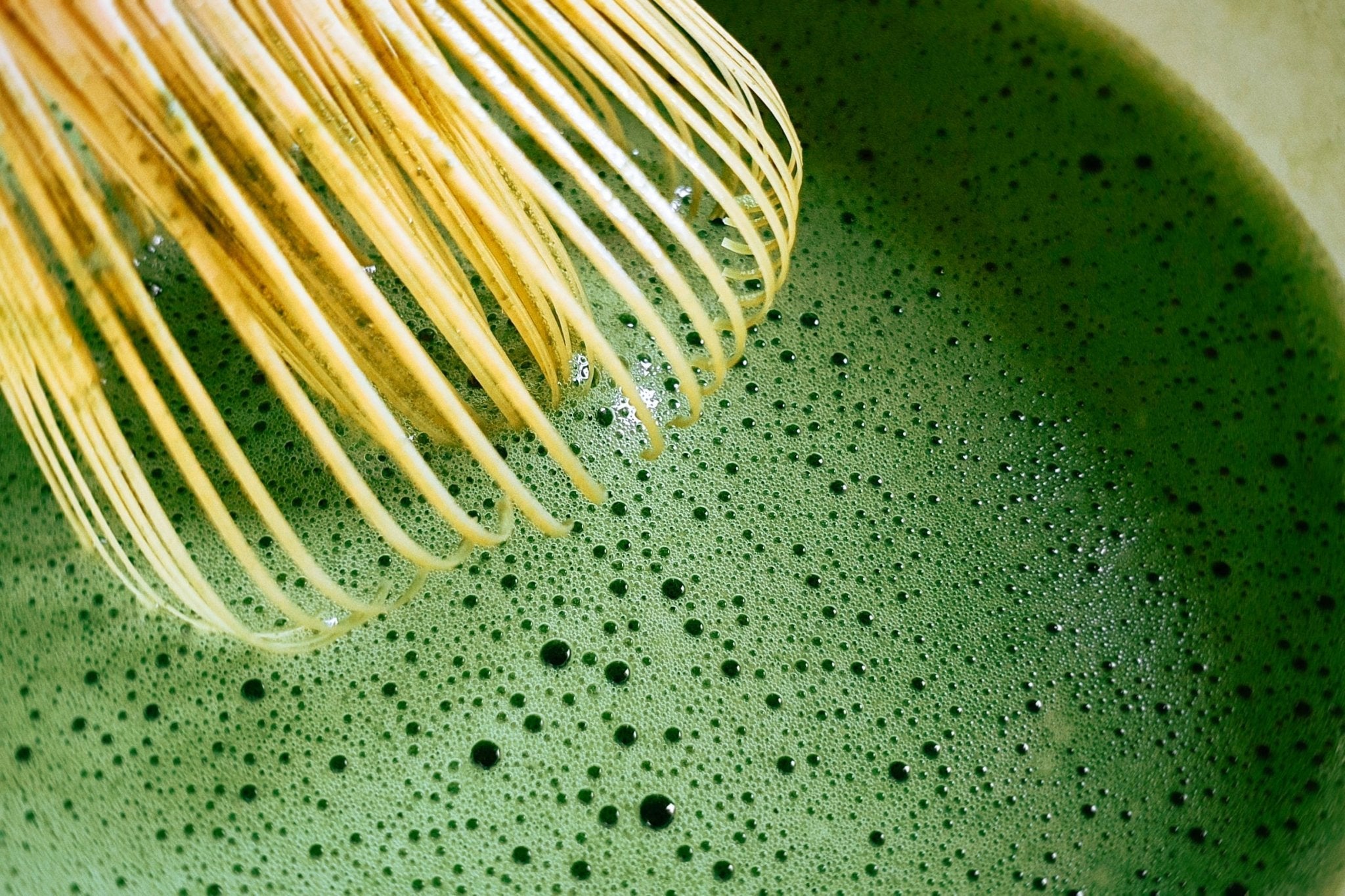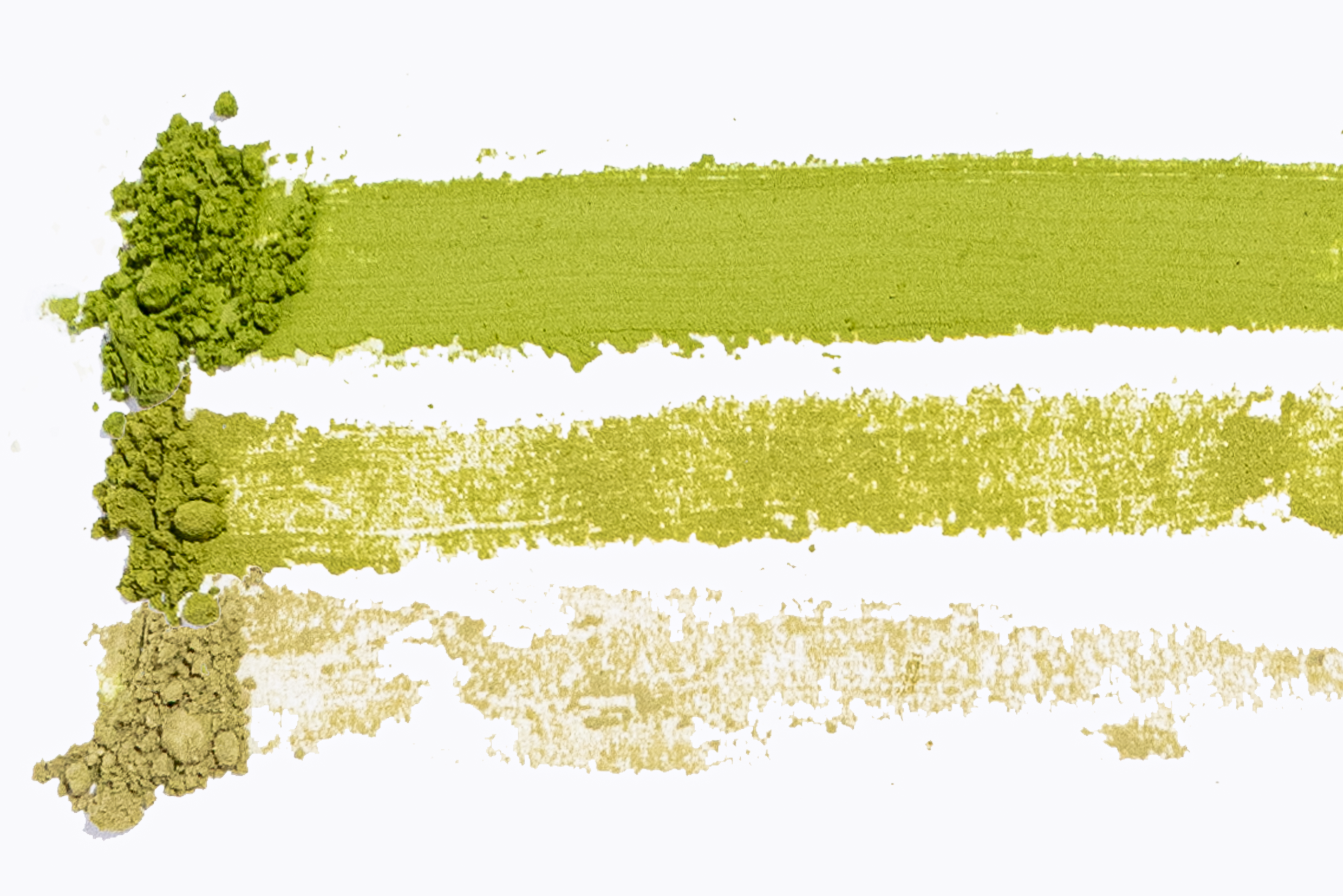In our fast-paced world, stimulating drinks like coffee and matcha have become fixed parts of our daily lives. While coffee has been firmly established in Western cultures for centuries, matcha has gained popularity in recent years. In this blog post, we will explore the differences between matcha and coffee and find out which drink is best suited for which situation.
Preparation
| Coffee |
As you surely know, coffee is extremely versatile and serves not only as a base for various drinks but is also used in desserts, sauces, and more. For the classic coffee beverage, ground coffee and hot water are needed, whereas recipes may call for either whole beans or ground coffee. The respective amount and preparation vary according to the chosen recipe. |
| Matcha |
Matcha also offers a wide variety of preparation options and is popular not only as a traditional beverage. For the classic preparation, the fine matcha powder is whisked with hot water until a frothy, creamy tea is created. But the uses of matcha go far beyond the tea ceremony. The green powder is also used in smoothies, lattes, ice cream, pastries, and even savory dishes. In doing so, matcha imparts not only its characteristic green color to the creations but also the unique taste and health benefits of green tea. |
Taste and texture
| Coffee |
Coffee drinks have a strong, often slightly bitter aroma that depends on the roasting and beans. The texture varies depending on the preparation method, from thin and clear in filter coffee to thick and creamy in espresso. |
| Matcha |
Matcha drinks vary in taste depending on quality, ranging from fruity and umami to slightly bitter. Lower-quality Matcha also tastes slightly grassy. The texture is usually creamy and frothy, leading to a pleasant mouthfeel. |
Health aspects
| Coffee |
Besides caffeine, coffee also contains antioxidants and other health-promoting substances. Moderate coffee consumption can improve cognitive performance, mood, and endurance. However, too much coffee can lead to sleep disturbances, heart rhythm disorders, and anxiety. |
| Matcha |
Matcha is rich in antioxidants, vitamins, and minerals. The caffeine in Matcha is released more slowly, leading to a gentler, longer-lasting energy boost. Additionally, Matcha contains L-Theanine, known for its relaxing effect. This can help Matcha provide a balanced, calm energy without the typical side effects of coffee. |
More about the health benefits of Matcha
Conclusion
Both Matcha and coffee have their advantages and can be used differently depending on preferences and situations. Coffee is great for a quick energy boost, especially if you appreciate the strong flavor. It is a versatile drink that can be enjoyed in various forms and flavors, e.g., from espresso to iced coffee.
Matcha, on the other hand, offers a gentler, longer-lasting energy source that supports both mind and body. The relaxing effect of L-Theanine can reduce stress and contribute to mental clarity. Matcha is ideal for those seeking a natural, healthy alternative to coffee or simply wanting to enjoy the unique taste of green tea.
Ultimately, the choice between Matcha and coffee depends on personal preferences and needs. Both drinks have their health benefits, and there's no reason not to enjoy both in moderation. You might want to switch between Matcha and coffee depending on the time of day and mood or have both drinks in your repertoire to get the best possible effect from both worlds.
Whether you're a die-hard coffee drinker or a Matcha lover, it's worth exploring the variety of flavors and effects of both drinks to find out which best suits your lifestyle and taste. So feel free to try both and discover which energy source is right for you.
